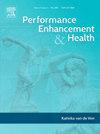Epistemic racism in anti-doping research: A call for critical awareness
IF 2.9
Q2 HOSPITALITY, LEISURE, SPORT & TOURISM
引用次数: 0
Abstract
The anti-doping movement is presented with significant challenges, including high-profile inter-agency disputes, claims of inconsistent application of the WADA Code, institutionalized doping, and the emergence of doping-permissive movements. Amid these issues lies a less recognized yet crucial issue of epistemic racism, which can undermine global anti-doping initiatives. Epistemic racism, rooted in culturally biased systems of knowledge production, often privileges Western perspectives while relegating non-Western perspectives. Such bias can perpetuate racial stereotypes and affect anti-doping research and policy implementation. This Commentary explores the concept of epistemic racism, its manifestations, and strategies for mitigation within anti-doping research. A case example of a recent publication is presented to demonstrate how epistemic racism can go undetected and unchallenged, potentially reproducing and reinforcing outdated stereotypes. Overlooked, epistemic racism can have profound ramifications, including deterring aspiring scholars from developing countries, distorting anti-doping policies, and reinforcing racial stereotypes. To counteract this, it is essential to educate researchers on racial biases, adapt methodologies to reduce these biases and increase the inclusion and representation of scholars from developing countries in research and editorial roles. Such measures may foster a more inclusive research environment and directly inform practice, helping anti-doping research and practice become more critically aware.
反兴奋剂研究中的认识论种族主义:对批判意识的呼唤
反兴奋剂运动面临着重大挑战,包括备受瞩目的机构间争端、世界反兴奋剂机构规则不一致的说法、兴奋剂制度化以及兴奋剂纵容运动的出现。在这些问题中,有一个不太为人所知但却至关重要的认知种族主义问题,它可能会破坏全球反兴奋剂倡议。认识论上的种族主义,根植于文化偏见的知识生产系统,往往给予西方观点特权,而贬低非西方观点。这种偏见会使种族刻板印象永久化,影响反兴奋剂研究和政策实施。本评论探讨了认知种族主义的概念,其表现形式,以及在反兴奋剂研究中的缓解策略。本文以最近发表的一篇文章为例,展示了认知上的种族主义是如何不被发现和不受挑战的,它可能会再现和强化过时的刻板印象。如果被忽视,认知上的种族主义会产生深远的影响,包括阻碍发展中国家有抱负的学者,扭曲反兴奋剂政策,强化种族刻板印象。为了解决这个问题,必须对研究人员进行关于种族偏见的教育,调整方法以减少这些偏见,并增加发展中国家学者在研究和编辑角色中的包容性和代表性。这些措施可能会营造一个更具包容性的研究环境,并直接为实践提供信息,帮助反兴奋剂研究和实践变得更加批判性。
本文章由计算机程序翻译,如有差异,请以英文原文为准。
求助全文
约1分钟内获得全文
求助全文
来源期刊

Performance enhancement and health
Social Sciences-Health (social science)
CiteScore
4.70
自引率
0.00%
发文量
27
审稿时长
57 days
 求助内容:
求助内容: 应助结果提醒方式:
应助结果提醒方式:


